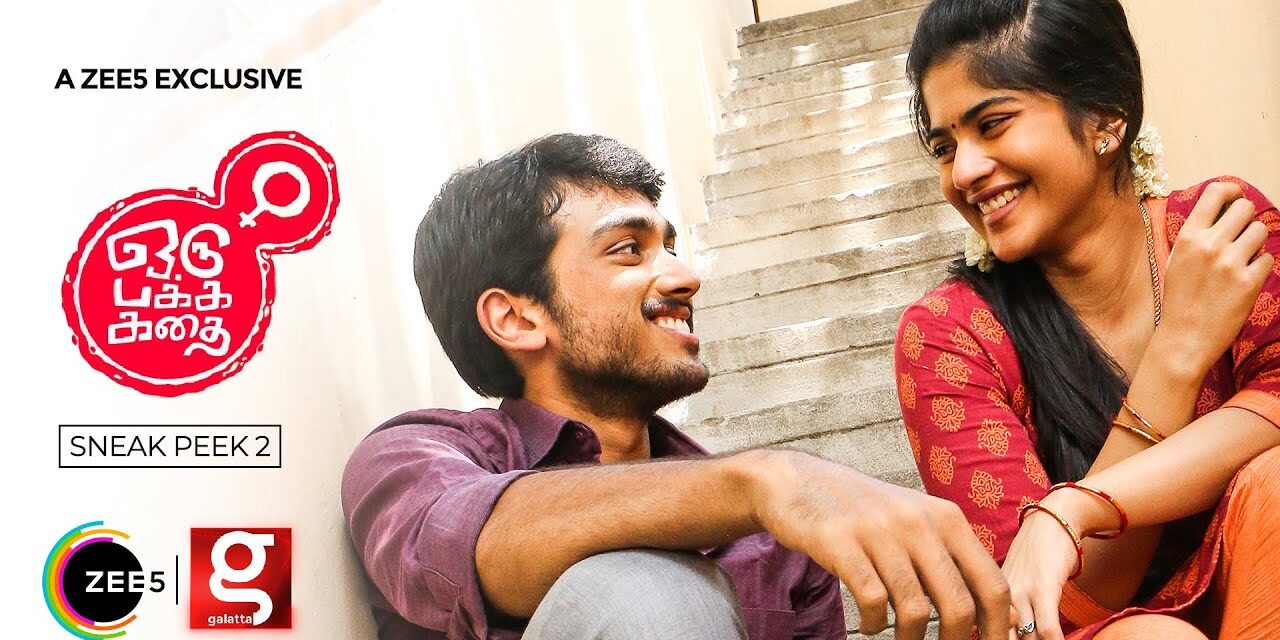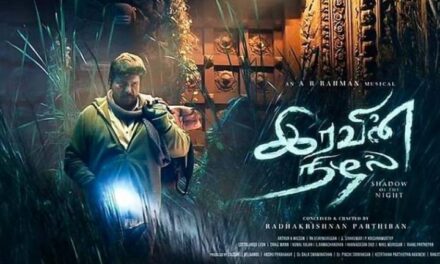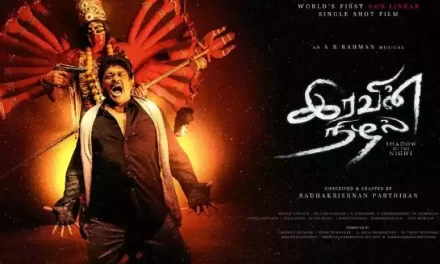Director: Balaji Tharaneetharan
Cast: Kalidas Jayaram, Megha Akash, Jeeva Ravi, Lakshmi Priya, P.V. Chandramouli
Language: Tamil
NO SPOILERS
Balaji Tharaneetharan is a unique director. His out-there themes and bizarre plotlines work for most of us, thanks to the way he handles his content. After the fantastic Naduvula Konjam Pakkatha Kaanom and Seethakathi, we now have Oru Pakka Kathai which has yet another one-of-a-kind plotline.
The film’s starting moments establishe the mood quite well. The normalcy of a household replete with a budding love story is beautifully staged. Meera (Megha Akash) and Saravanan (Kalidas Jayaram) are college-going youth who are in love. Their parents are aware of their relationship and there is no drama there. In fact, the lack of drama and its utterly practicality are one of the wining points of this film. When a bizarre miracle comes into the couple’s lives, there is no yelling or screaming… but rather a quite conversation on what to do next. This miracle soon takes another shape and religion soon occupies centre frame. Religion is a consistent theme throughout the film, but if you go with a clean slate, this plot is bound to surprise you with the ‘twist’.
There is a sub-plot in the film that involves a kid who thinks that he is God. The exchanges between this child and his friend are inspired and we wait for this line of thought to take off somewhere. Look out for a scene where the kid explains to his friend about his ‘powers’. But soon it loses steam and only a few nice moments peek in now and then.
What I loved about Oru Pakka Kathai is the absolute lack of drama even during extraneous circumstances. But that also serves as its weakness at many points. While it is understandable and even expected for young parents to react to a ‘miracle’ with complete denial, the dead-panned expressions of continued disbelief by Meera and Saravanan seem stretched, especially towards the end. Maybe some drama here would have worked…and even been welcome. Organic reaction shots work in the beginning of the film when normalcy was also established. But after such an out-there revelation, we expect reactions to be a little bit more thrilling, but we are served with the same look of mild confusion even then.
The roles of Meera’s and Saravanan’s parents deserve a hat tip. There are no typical reactions here. Only practicality and acceptance. There is a sensitively written scene with both the parents discussing their errant children’s future. In fact, there are many such scenes with the parents that give us a break from the norm.
The segue in the second half takes us away from the warm moments of the first and leads into the scary yet relatable world of superstitions and religion. Kalidas Jayaram as a young, confused man is much more convincing in the first half than the second. He is innocent yet practical and clear-headed. But it is the lack of apparent emotion from both Meera and Saravanan that stands out like a sore thumb in the second half. Music by Govind Vasantha reaches out to us with a fitting BGM.
Overall, kudos to Tharaneetharan for an attempt into relatively unchartered waters. However, this intricately unique premise could have worked much more with better writing, a wee bit of drama, and a shorter run-time.
Rating: 2.5/5










